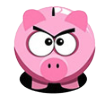You’ve started a blog. Amazing! You bought a clever domain, you’ve learned how to use your blogging platform by watching hours of very dry Youtube tutorials, and now you’re ready to write. But, who are you writing for and what are you writing about? Here, we’re going to address how to pick a blog niche.
“We are in niche consumption mode, but ‘niche‘ doesn’t mean ‘small’ anymore. Niche can mean focused, and particularly with the Web, which is a global audience… you can have something niche and still get 10 to 15 million views.” Chris Hardwick, comedian and television host of Talking Dead and @Midnight.
Choosing The Right Niche
You may have started out thinking, “I’ll write about whatever comes into my head until I figure it out!” only to stare at a blank word processing screen for an hour because you can’t decide where to start. You’ve discovered that writing isn’t all about you; it’s about your readers.
If you want to write a hobby blog, then you can play around a bit, but if you’re serious about developing an audience, a following, and eventually a viable business around what you do, then you have to pick a blog niche so that people have a reason to keep coming back to you.
There is an abundance of things that factor into choosing a niche. First, you have to be interested in the topic or your writing will be boring, and you’ll have trouble consistently producing content. Are you interested in learning more and more about this topic, and bringing an audience along for the journey?
You also want to do your research and check out the competition in order to understand where your unique point of view fits into the very noisy blogosphere puzzle. There is room for everyone, but you want to stand out.
Lastly, is your topic something that could make you money? There are a few different ways to make money from blogging, such as affiliate marketing, products, and services. Again, do your research and see how well others in your space are doing. If it looks like their blogs haven’t been updated in many months, it could be a sign there’s no way to monetize that content. We’ll get into that more shortly.
Let’s start with what you love writing about.
What Could You Write A Million Words About?
I can’t understate the importance of figuring this out. I’ve talked to a number of beginner bloggers who lost steam because they lost interest in the topic they were writing about.
While writing about digital marketing and social media may be alluring because of the potential to monetize, if you’re not passionate about those topics, you won’t be on top of the latest trends and sharing compelling content with new or unique ideas. You’ll be just like the million other sub-par digital marketing and social media blogs out there.

If you’re passionate about many things, think about what you know the most about or are at least interested in researching exhaustively. You may love hip hop music, but if you don’t know much about the history of hip-hop, emerging artists, and different sub-genres, you won’t be seen as an authority on the topic.
On the other hand, if you’re passionate about carpentry and you know a lot of interesting things about carpentry, plus you have a handful of interesting techniques or tips for others seeking the same career, it’s something people would come to you to learn more about.
There are four questions you can answer to uncover your niche topic based on what you’re passionate about:
- What do I currently do that people come to me for help with or pay me for?
- When I meet people for the first time, what’s a topic of conversation I typically use (beyond small talk like the weather) to engage with the other person?
- If I could do anything for the rest of my life, what would it be?
- What topic takes up the most space on my bookshelf and in my web browser bookmarks?
Use your answers plus the other ideas in this article to decide what niche you fit into.
Get Even More Specific

Now that you’re clear on what topic or topics you’re passionate about and could write forever and ever about, it’s time to narrow this niche thing down even more.
The most important thing you can learn early on as a blogger is that you cannot and will not please everyone. You are not close friends with everyone (despite how friendly and awesome you are and how many acquaintances you have), and just like your groups of friends, your audience will be made up of groups of people with similar interests and passions. Your job is to write for them and bring them together.
Let’s use that carpentry example again. A narrower niche could be DIY carpentry, fine art carpentry, or helping young women learn carpentry skills. What skills or knowledge can you help people with?
Getting specific is also about narrowing your audience. Think about who you’re going to write for. Is it tech enthusiasts, mothers-to-be, or downhill mountain bikers? How do they think and act, and what other interests do they have?
The easiest way to figure out your audience is to look once again at who you already help, or look for an underserved niche. If you notice that a group of people can’t find the answers they need, and you’re in a position to help them, do it.
A few ways to find a need:
- Research topics on forums like Quora. What kinds of questions are people asking and who is asking these questions?
- Read the comments on your favorite blogs and social media accounts.
- If you are part of an organized group, spend time in Facebook groups or at networking events, and ask people about things they have trouble finding online.
Once you know who you’re writing for and what you’re going to write about, the act of writing gets easier. You can build content strategies, set goals, and measure how close you are to meeting those goals. That’s how you continue to grow and scale your blog into a business, which brings me to my last point: building a blog that has potential to make you money.
Get Paid To Do What You’re Passionate About

Imagine how cool it would be to get paid for doing what you love to do. You may have a job you like right now, but do you love it? Have you envisioned amassing a meaningful community and helping people with your craft?
If you do want to scale your blog into a business at some point, it’s important to think about that now. You shouldn’t blog just to make money – you’ll eventually fall out of love with it if that’s your prime focus. But, your blog and content can support you to do this full-time if that’s what you want.
The easiest way to check if your blog topic and audience have earning potential is by researching similar blogs or businesses to see how successful they are. If there are a lot of businesses in your niche, chances are it has earning potential.
There are several ways bloggers make money:
- Sponsored content and paid advertising.
- Affiliate marketing (promoting others’ products for a commission).
- Ebooks, ecourses, and other information products.
- Coaching other bloggers.
- Physical merchandise like t-shirts.
- Speaking engagements and other events.
Many use a combination of these strategies to earn from their work. When you’re doing your research, see what the competition is offering and how they’re offering it.
You’ll also need to analyze your audience for potential to monetize. Will your audience purchase products from you, or will they buy products you recommend? Especially if you do affiliate marketing, you’ll need to recommend products that your audience will want.
Students will be harder to earn from than corporate professionals. Make any offer compelling enough and you’ll have buyers, but your pricing and business model will need to align with your audience’s purchasing power and habits.
“The future of publishing is about having connections to readers and the knowledge of what those readers want.” – Seth Godin, author and entrepreneur.
Your ideas matter, and when you can pair your ideas with the right audience you can build a tribe of people who can’t wait to read your next email or blog.
While blogging seems like a good way to just get stuff off your chest, it’s important in this noisy online world to be strategic if you want to go somewhere. The way to do this is to find your niche, that sweet spot where your passion meets a captive audience.
Stop writing just for the sake of writing. That’s what your journal is for. Write for an audience, help them find solutions, inspire them with your unique point of view, and connect with them by showing that you understand where they’re at.
When you dig into a topic and demonstrate your expertise, you’ll be the go-to for that thing, and when you’re ready to scale up and turn your passion into a real business, you’ll have a loyal audience ready and waiting.
Whip out your notebook right now and find that niche. THEN start writing.
